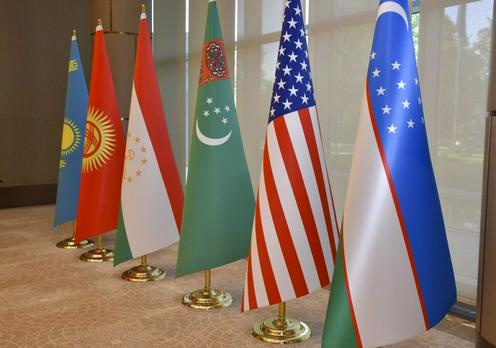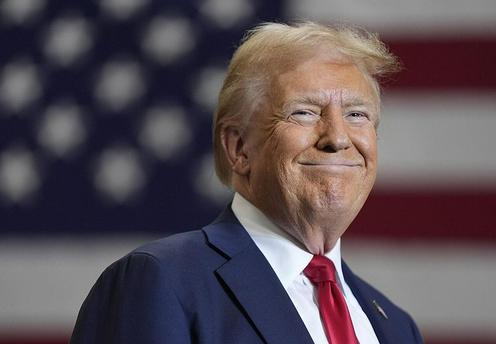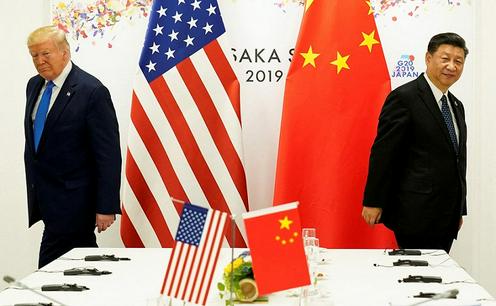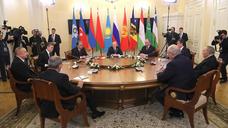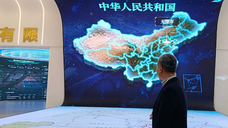On November 6, Washington will host the “Central Asia–United States” summit in the C5+1 format. Presidents of Kazakhstan, Kyrgyzstan, Tajikistan, Turkmenistan, and Uzbekistan are invited. The first such summit took place in September 2023 in New York. At that time, the sides discussed a broad range of issues, focusing particularly on cooperation in “green” energy and regional security.
The lineup for the upcoming dialogue remains the same—except for the U.S. president. In 2023 it was Joe Biden; now it is Donald Trump. And this is a fundamental change, one that alters the face of global politics itself. What should Central Asian countries expect from the forthcoming summit?
Strolling Through the Buffet
The host of this summit, Donald Trump, was born on June 14, 1946, in New York City. A hereditary millionaire and businessman, he was also a television personality and showman who, from 1996 to 2015, co-owned the rights to the Miss USA and Miss Universe pageants with NBC. He entered politics around the turn of the millennium and won the U.S. presidential election for the first time in 2016. The slogan of his campaign was “Make America Great Again”—a motto many jokingly rephrased into “Make Trump Great Again,” especially during his second turn in the White House.
Trump’s behavior has been described by some as eccentric and by others as outright rude and boorish. His disregard for norms as the 45th (and now 47th) president of the United States raised concerns that he might break the country’s established political system. Liberal commentators in Russia dismissed such predictions, pointing to the resilience of democratic institutions, independent courts, and the U.S. Constitution. It famously includes the Second Amendment, which grants Americans the right to armed rebellion—if their government grossly violates citizens’ rights and the Constitution.
Ironically, the people did make use of that right on January 6, 2021. However, those “people” were Trump supporters, who, along with their leader, refused to recognize the 2020 election results, won by Joe Biden. The rioters stormed the Capitol and demanded that the results be overturned. The uprising was suppressed, and the defeated candidate retreated. It was a serious alarm bell: Trump had shown himself willing to attempt to seize power by force.
Voters, however, did not appear frightened. In 2024, the election again ended in Trump’s favor. He had already pushed boundaries during his first term—but after the second victory, things escalated into what Russians jokingly call “strolls through the buffet.” Wild proposals from the new-old president—from annexing Canada and Greenland to shelling and sinking ships suspected of transporting drugs—have made the naïve question more relevant than ever: Is he actually allowed to do that?
Trump’s return to the White House revealed a profound civilizational rupture. The world has discovered that it now lives in an era that might best be defined as post-conventional. This follows what the psychologist Lawrence Kohlberg described in the 20th century as a post-conventional stage of moral development: an attitude where an individual’s personal worldview stands above the opinions of society—and even above its laws.
Power of the Mob
As is well known, any society traditionally exists in two dimensions: the law and the social contract—or, in other words, social convention. The law restrains people from crimes and socially dangerous acts, while the social convention ensures their mutual and harmonious coexistence.
But in recent decades, post-conventional psychology has expanded to ever broader segments of society, gradually transforming the world. As a result, norms of social convention have begun to be violated in the most flagrant ways—both in everyday life and on the international stage. Thus, in the confrontation between Israel and Hamas, the unexpected “victim” came to be regarded as the terrorist organization that carried out the massive and brutal killing of innocent people on October 7, 2023.
The post-conventional world is filled with a wide range of tendencies, but its general condition can be described as follows: people behave as if nothing existed before them, inventing their own rules that either have no connection with commonly accepted ones or directly contradict them.
A representative of such a world seeks to replace both the law and the social contract with his own will, expressed in various declarations that, he believes, are not subject to discussion. On the one hand, this manifests as the opinion of consolidated masses, who liberally use terms like “unacceptable” and “inappropriate.” On the other—direct application of force.
One branch of this trend is so-called wokeism (from the English woke, “to wake up”). Wokeism is defined by heightened attention to all kinds of justice—political, racial, social, gender-based. One of its most radical forms has become “cancel culture.” Its essence lies in the ability to accuse anyone of violating the moral standards of the woke and demand their “cancellation”—total discrediting and stripping of social status.
A professor may be deprived not only of a chair and a job but even of authorship of their own works; a hereditary aristocrat—of noble lineage. Even the dead are not spared: historical figures deemed offensive must have their roles revised—up to erasure from textbooks and complete oblivion.
Wokeists display extreme categoricalness, since truth belongs only to them. If someone is deemed guilty—or simply “toxic”—by the woke, that person is subject to cancellation and ostracism, even when there is no evidence of wrongdoing. Public tribunals on social media are reminiscent of China during the Cultural Revolution, when Red Guards carried out reprisals against innocent people who, in their view, might be taking a “bourgeois path.” Anything displeasing to them could become grounds for persecution. The accused were forced into public confessions of imaginary crimes—and even that often did not save them. The difference between today’s wokeists and the Red Guards is that the latter were able to destroy a person physically, while wokeists, for now, destroy only socially and psychologically.
Protecting someone pursued by the woke is rarely possible. A typical example is J.K. Rowling. The famous author mocked gender activists who decided to call women “people who menstruate.” Cancel culture fell upon her with full force, with demands not only to exclude her from society but also to strip her of the rights to her own books. One cannot help but recall the Soviet joke in which Stalin tells Krupskaya: “Remember, we can appoint someone else as Lenin’s widow instead of you.”
Fortunately, Rowling’s case turned out better than many feared. Although even young actors from the Harry Potter films joined in the attacks, millions of fans managed to defend the author and partially silence her accusers.
In essence, wokeism is a modern form of ochlocracy—mob rule. At the same time, wokeists, who generally represent a minority, derive strength from their unity. Governments and major corporations listen to them—and even bow to their demands. Perhaps this responsiveness comes from the old commercial formula: “The customer is always right.” In this case, the “customer” is not an individual, but a consolidated movement of the woke.
Nothing Will Wash It Off
The other side of the post-conventional world is the raw manifestation of the power of authority and money. In response to the indignant question, “Why are you doing this?” one increasingly hears the rude reply: “Because we can.” And this is, in a way, a reaction to the unrestrained insolence of the wokists who fight for everything they believe is good against everything they believe is bad.
This trend has perhaps manifested most vividly in the example of the current U.S. president. In just a short period, Trump has at least partly managed to twist various kinds of wokists into knots. They have become so tiresome to the average American with their constant demands on everyone and everything that society did not come to their defense.
However, there is little joy in this, because the American president who is defeating wokists is just as much a typical representative of the post-conventional world as the wokists themselves. In other words, his victory, which strengthened some traditional norms, marked the final collapse of other norms, including diplomatic ones.
For instance, Trump thinks nothing of declaring that foreign leaders came not to negotiate but to kiss his ass. He spits on norms and traditions, without thinking about the consequences, changes tariffs and duties depending on the whim of his left — or rather, right — foot, since politically Trump is undoubtedly a right-wing populist. The world shudders, markets crash, and it all rolls off Trump like water off a duck’s back — he owes nothing to anyone. And this is one of the stark features of the post-conventional world.
Symbolically, under the influence of the current American president, the concept of convention, of agreement, has receded into the background, while the deal has come to the fore. But a deal is far more petty than an agreement, which still contains a noble principle. If one can speak of the spirit and the letter of an agreement, then speaking of the spirit of a deal is rather laughable.
Of course, Trump is far from the only post-conventional brute on the political stage — merely the largest and most influential. Where Trump openly behaves rudely, Macron — who is publicly smacked around by his own wife — plays the freak and openly trolls parliament by reappointing Lecornu as prime minister immediately after removing him from that position. Why? “Because we can!” And also because, “What are you going to do about it?”
In the post-conventional world, principles, decorum, and the institution of reputation are dying off. None of this is needed, because it is assumed that the electorate’s memory is like that of a goldfish. And perhaps that is indeed the case, since things that were once unthinkable have become possible. The state frees itself from obligations to citizens, and citizens free themselves from obligations both to the state and to one another. A not-too-popular Soviet-era saying — “I’m a piece of shit, and nothing will wash it off!” — has today become a guiding principle for far too many. Trolling — overt or covert — has become a defining feature of human relations. Anything can be justified if you call it trolling. But trolls are, after all, huge, brainless, stinking creatures. So what joy is there for a person in being a troll?
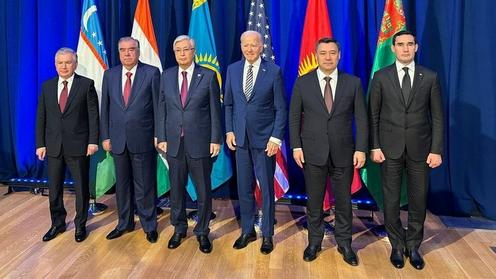 C5+1 First Summit — Leaders of the Central Asian Countries and Then-U.S. President Joe Biden. Photo: aki.kg
C5+1 First Summit — Leaders of the Central Asian Countries and Then-U.S. President Joe Biden. Photo: aki.kg
What Are You Going to Do About It?
In the post-conventional world, the individual — with personal values, needs, and interests — has gained exaggerated, almost cartoonish importance, automatically placed above everything and everyone else. If once politics centered on national interests, now it has shifted to the interests of politicians themselves. As a result, politics has become rooted in psychology — and the most primitive kind at that. You’re the president of a not-so-big country and want things to go well for your nation? Then you must kiss up to Trump. Or, as Vice President J.D. Vance puts it, show him respect. And no one is surprised anymore that the leader of the world’s strongest power demands constant displays of respect — like a drunk at a bar.
There used to be a joke: What’s the difference between a Soviet diplomat and a British one? Answer: the British diplomat was taught to wash his hands after using the toilet, while the Soviet one was taught not to pee on his hands in the first place. Now both schools are forgotten — you can skip washing entirely and pee wherever you like, even on someone else’s hands.
Despite serious global transformations, conventional habits among today’s politicians remain strong. That means Trump is only taken seriously by those who share his mindset; everyone else is simply waiting for his term to end and for him to leave — he’s just too unpredictable.
However, simply waiting is reckless. First, a politician can cause such chaos in a short time that a century wouldn’t be enough to clean up the mess. Second, there’s a very real possibility that Trump intends to leave the presidency only in a coffin. His ambitions clearly rival those of Xi Jinping, Putin, or, say, Kim Jong-un — leaders firmly committed to ruling forever.
Moreover, if he had his way, Donald Trump would simultaneously be president, emperor, and pope. Not to mention the Nobel Prize — which, it seems, everyone except the Nobel Committee itself has promised him. And that’s quite an insult. As a movie character once complained about oil: “Taghiyev has it, Nagiyev has it, Nobel has it, the Rothschilds have it — and only I don’t.” Trump already has oil, among many other things; what’s left are just the details — a Nobel Prize, an imperial throne, the papacy, and the title of world messiah.
Of course, a sober person might question Trump’s ambitions: does he actually have a way to remain president after his second term ends? Legally — no. But when was the last time anything in the world happened strictly by law? Aside from Nicolas Sarkozy’s recent imprisonment, nothing comes to mind. One way or another, leaders of seemingly democratic countries find methods — smooth or rough — to extend their authority. “And what are you going to do about it?” — this phrase, which became popular in Russia in the early 21st century, now permeates the entire global landscape.
A post-conventional President Trump is not just America’s problem, and not merely a problem of international politics; he is a problem for the entire world — especially for presidents who, however imperfectly, are accustomed to relying on conventions. And the leaders of Central Asia — with some reservations — still fall into that category.
The Magic Word
A natural question arises: under these circumstances, how should one negotiate with the president of the United States — say, at the upcoming summit? Should one follow Savelich’s advice from The Captain’s Daughter: spit and kiss the hand — or rather, the backside? That hardly seems right: one would be embarrassed in front of one's peers, and the electorate might not appreciate it either.
Thus, the situation is extremely difficult. In addition to the concrete issues on the summit agenda, broader strategic matters will have to be resolved — and the main strategic issue now is relations with America. And America means Trump. This will remain the case for the next three years at least — and that is the best-case scenario. In the worst case, America will be Trump until he departs this world.
So how does one make the conversation work — given that Trump struggles to build a productive dialogue even with Xi Jinping and Putin, whom he calls his best friends? Putin tells Trump stories about the Pechenegs and Polovtsians, Xi responds with meaningful silence or the vaguest of platitudes. But no real results follow — the leaders of great powers part ways dissatisfied, whatever they may say afterward. And, strange as it may seem, this opens a window of opportunity for Central Asia.
First, the leaders of the Central Asian states can coordinate their positions and act from a common plan. Second, during a joint conversation with Trump, they can play not “each for himself” but “all against one.” One applies pressure, another yields; one shows sympathy, another falls silent in thought. Five against one is a serious political configuration — especially when the region is Central Asia, the “mysterious East,” where even the devil could lose his way, let alone Trump.
It is certainly fortunate for Central Asia that the summit will take place amid a clear cooling of relations between the United States and Russia — or, more precisely, between Putin and Trump. Things haven’t escalated to Tomahawks flying, but the American president’s mood has clearly soured, as shown by tighter sanctions against Russia. His recent meeting with Xi Jinping was not especially successful either. This, too, deprives him of psychological comfort.
Against this backdrop of irritation and disappointment, a meeting with the Central Asian leaders is, oddly enough, a form of psychotherapy for Trump. He needs to demonstrate that everything is fine, that he remains in control. But unlike China and Russia, he has no reason to pressure Central Asia. Therefore, he will likely try to show his goodwill toward the region’s leaders — lowering tariffs, making gestures of cooperation, and so on. Central Asia has recently become a noticeable region in world politics and economics. Not only Russia and China are paying attention — much more distant countries are increasingly interested as well. This will also influence Trump’s behavior.
And while most observers agree that no dramatic breakthroughs will come from the summit, we must ask — what counts as a breakthrough? In this case, a breakthrough would mean establishing a strategic partnership with the United States de jure and de facto — the sort of partnership Central Asia has already built with the European Union. This is entirely achievable; the key is to determine which post-conventional methods to apply in dealing with Trump.
One undoubtedly effective method involves a magic word. But in Trump’s case, that word is not “thank you,” nor “please,” nor even “goodbye.” The magic word here is “deal.” Trump believes that making deals is the alpha and omega of his existence — the justification for anything he does. A deal is made — the rest is just details.
Therefore, the presidents of the Central Asian republics must strike a deal with Trump. The task is simply to determine the conditions on which such a deal should be made — and how to secure them. And one more thing: this deal must be not merely a transaction, but also a contract — combining both conventional and post-conventional elements. Only then will engagement with America have serious, long-term strategic prospects.
-
 23 December23.12PhotoTokyo DriveJapan to invest about $20 billion in projects across Central Asia over five years
23 December23.12PhotoTokyo DriveJapan to invest about $20 billion in projects across Central Asia over five years -
 17 December17.12Sake for SixCentral Asia’s Rapprochement with Japan Comes with Hidden Pitfalls
17 December17.12Sake for SixCentral Asia’s Rapprochement with Japan Comes with Hidden Pitfalls -
 17 September17.09Risky PartnershipWhy Dealing with China Is Harder Than It Seems at First Glance
17 September17.09Risky PartnershipWhy Dealing with China Is Harder Than It Seems at First Glance -
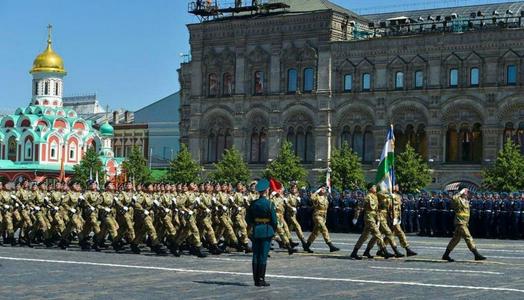 25 June25.06VideoAn Uzbek firstTashkent sends troops to Russia’s Victory Day Parade for the first time. There they took part alongside their neighbours
25 June25.06VideoAn Uzbek firstTashkent sends troops to Russia’s Victory Day Parade for the first time. There they took part alongside their neighbours -
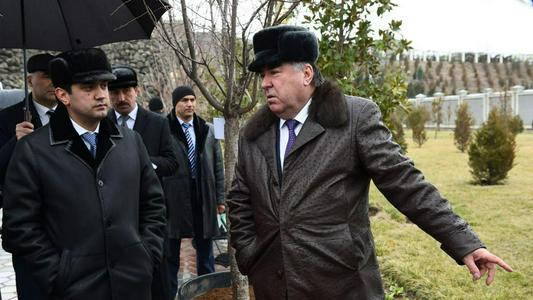 28 April28.04Keep it in the familyWhat lies behind Rustam Emomali’s meteoric rise to power?
28 April28.04Keep it in the familyWhat lies behind Rustam Emomali’s meteoric rise to power? -
 17 April17.04A bad feelingAs one of the few remaining countries in the world yet to record cases, residents of Tajikistan are anxiously awaiting the arrival of COVID-19. Meanwhile, some doctors argue that the country experienced its first wave of the virus already last year...
17 April17.04A bad feelingAs one of the few remaining countries in the world yet to record cases, residents of Tajikistan are anxiously awaiting the arrival of COVID-19. Meanwhile, some doctors argue that the country experienced its first wave of the virus already last year...
